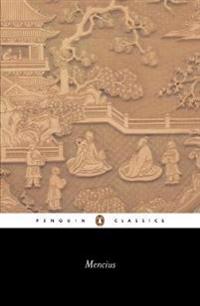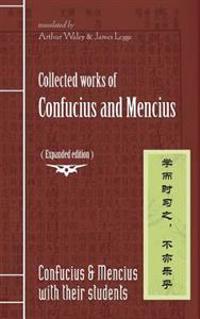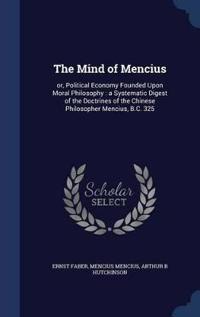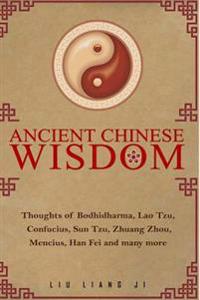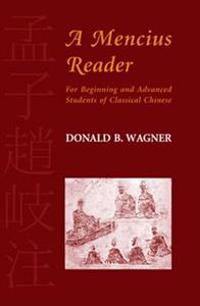Mencius (Storpocket)
avMencius
ISBN: 9780140449716 - UTGIVEN: 200410Mencius was one of the great philosophers of ancient China, second only in influence to Confucius, whose teachings he defended and expanded. The Mencius, in which he recounts his dialogues with kings, dukes and military men, as well as other philosophers, is one of the Four Books that make up the es[...]
Mencius (Övrig)
avMencius
ISBN: 9780231122047 - UTGIVEN: 2009-08-31Known throughout East Asia as Mengzi, or "Master Meng," Mencius (391-308 B.C.E.) was a Chinese philosopher of the late Zhou dynasty, an instrumental figure in the spread of the Confucian tradition, and a brilliant illuminator of its ideas. Mencius was active during the Warring States Period (403-221[...]
Mencius (Övrig)
avMencius
ISBN: 9780231122054 - UTGIVEN: 2011-02-28Known throughout East Asia as Mengzi, or "Master Meng," Mencius (391-308 B.C.E.) was a Chinese philosopher of the late Zhou dynasty, an instrumental figure in the spread of the Confucian tradition, and a brilliant illuminator of its ideas. Mencius was active during the Warring States Period (403-221[...]
Collected Works of Confucius and Mencius: Expanded Edition (Häftad)
avConfucius (Kongzi), Mencius (Mengzi)
ISBN: 9781492346449 - UTGIVEN: 2013-09Ancient Chinese Wisdom: Thoughts of Bodhidharma, Lao Tzu, Confucius, Sun Tzu, Zhuang Zhou, Mencius, Han Fei and Many More (häftad)
ISBN: 9781523493258 - UTGIVEN: 2016-01Mencius (häftad)
ISBN: 9787305075834 - UTGIVEN: 2014-06Throughout history, the thinking of Western Europe and America has often dominated scholarly conversation, even on objects of study outside of those cultures. Thus Western academic inquiry into Chinese philosophy, for example, from Confucius and Laozi to Mozi and Chen Liang, has rarely engaged with [...]
A Mencius Reader
ISBN: 9788791114274 - UTGIVEN: 2004-05This textbook contains material for students of classical Chinese at three different levels: the first chapter of "Mencius", reproduced from a modern punctuated edition, with very detailed notes and glosses intended for students in their second semester of classical Chinese; the same chapter, reprod[...]

